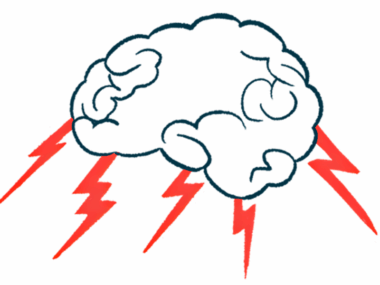Krill Oil Reduces Hallmarks of Parkinson’s Disease in Animal Model
Treatment makes nerve cells more resilient to stress, inflammation
Written by |

Krill oil, which comes from a shrimp-like animal, protected dopamine-producing neurons from age-related degeneration and boosted neurologic processes dependent on the brain chemical messenger in a worm model of Parkinson’s disease, a study showed.
The production of dopamine is gradually impaired in people with Parkinson’s due to the progressive loss of dopamine-producing, or dopaminergic, neurons.
The benefits were associated with these neurons’ greater resilience to oxidative stress and inflammation, improved health of mitochondria, the cell’s powerhouses, and fewer alpha-synuclein protein clumps, which build up to toxic levels in the brains of Parkinson’s patients.
If the findings hold true in humans, “krill oil supplementation might serve as a possible approach for healthy brain aging interventions,” the researchers wrote.
The study, “Krill oil protects dopaminergic neurons from age-related degeneration through temporal transcriptome rewiring and suppression of several hallmarks of aging,” was published in Aging.
Living longer doesn’t necessarily translate into living healthier, with aging being one of the main risk factors of several diseases, including Parkinson’s. Growing evidence suggests targeting the multiple mechanisms that drive aging may help extend a healthy lifespan.
Oil from fatty fish and other seafood is rich in omega-3, a type of fat that’s essential for good health, and there is a common belief that eating omega-3-rich foods will protect against disease, leading researchers in Norway to use a worm model of Parkinson’s to see how Antarctic krill may promote healthy aging and prevent age-related diseases.
Antarctic krill is found in abundance in Antarctic waters. It’s rich in omega-3 as well as astaxanthin, an anti-inflammatory and antioxidant molecule, and choline, a precursor of the brain chemical messenger acetylcholine. Caenorhabditis elegans, or C. elegans, is a tiny, transparent roundworm “regarded as a good model to study aging as most pathways affecting the aging processes are conserved between the nematode and humans,” the researchers wrote.
Krill oil protects neurons from degeneration, death
Results showed the number of dopaminergic neurons in this C. elegans model dropped quickly within six days, whereas feeding the worms krill oil protected their neurons from age-related degeneration and death.
Krill oil was also associated with a significant reduction in alpha-synuclein aggregates (17 vs. 50 per animal) and a significant increase in activity (400 vs. 340 movements per hour). This suggests krill oil may ease motor symptoms of Parkinson’s, at least in this animal model. Krill oil-fed C. elegans also performed significantly better in a test of dopamine-dependent learning processes.
“In a C. elegans model of Parkinson’s disease, we show that krill oil protects dopaminergic neurons from aging-related degeneration, decreases alpha-synuclein aggregation, and improves dopamine-dependent behavior and cognition,” the researchers wrote.
Compared with untreated C. elegans, those treated with krill oil showed a 60% drop in senescent cells and a sixfold decrease in levels of 8-oxoG, a marker of oxidative stress. Senescence is a process by which a cell ages and permanently stops dividing into new cells, but doesn’t die. Oxidative stress is a type of cellular damage that’s a fundamental feature of aging and is a contributor to Parkinson’s. It results from an imbalance between the levels of damaging reactive oxygen species, whose main producers are mitochondria, and antioxidants to neutralize them.
Unhealthy or poorly working mitochondria can contribute to oxidative stress and their function was significantly reduced in the Parkinson’s model relative to treated animals.
Similar findings were obtained for senescence and mitochondrial function when lab-grown human connective tissue cells were treated with krill oil.
It also promoted significant changes in gene activity in midlife and older age that reflected a reduction in “several aging hallmarks, including oxidative stress, proteotoxic stress, senescence, genomic instability, and mitochondrial dysfunction,” the researchers wrote. Proteotoxic stress is a type of cellular damage that results from misfolded or unwanted proteins accumulating.
Mechanistically, krill oil leads to gene activity changes in anti-inflammatory and antioxidant responses and in neuronal function, which may help dopaminergic neurons become resilient to oxidative stress and inflammation, and survive longer.
Consistent with these findings, the predicted age of krill oil-fed C. elegans was younger than their actual age or the predicted age of untreated animals. This was true for both healthy worms and those with Parkinson’s-like disease.
“Krill oil promotes healthy aging by counteracting many processes that drive aging,” the researchers wrote, adding these findings provide “directions for further pre-clinical and clinical explorations.”



